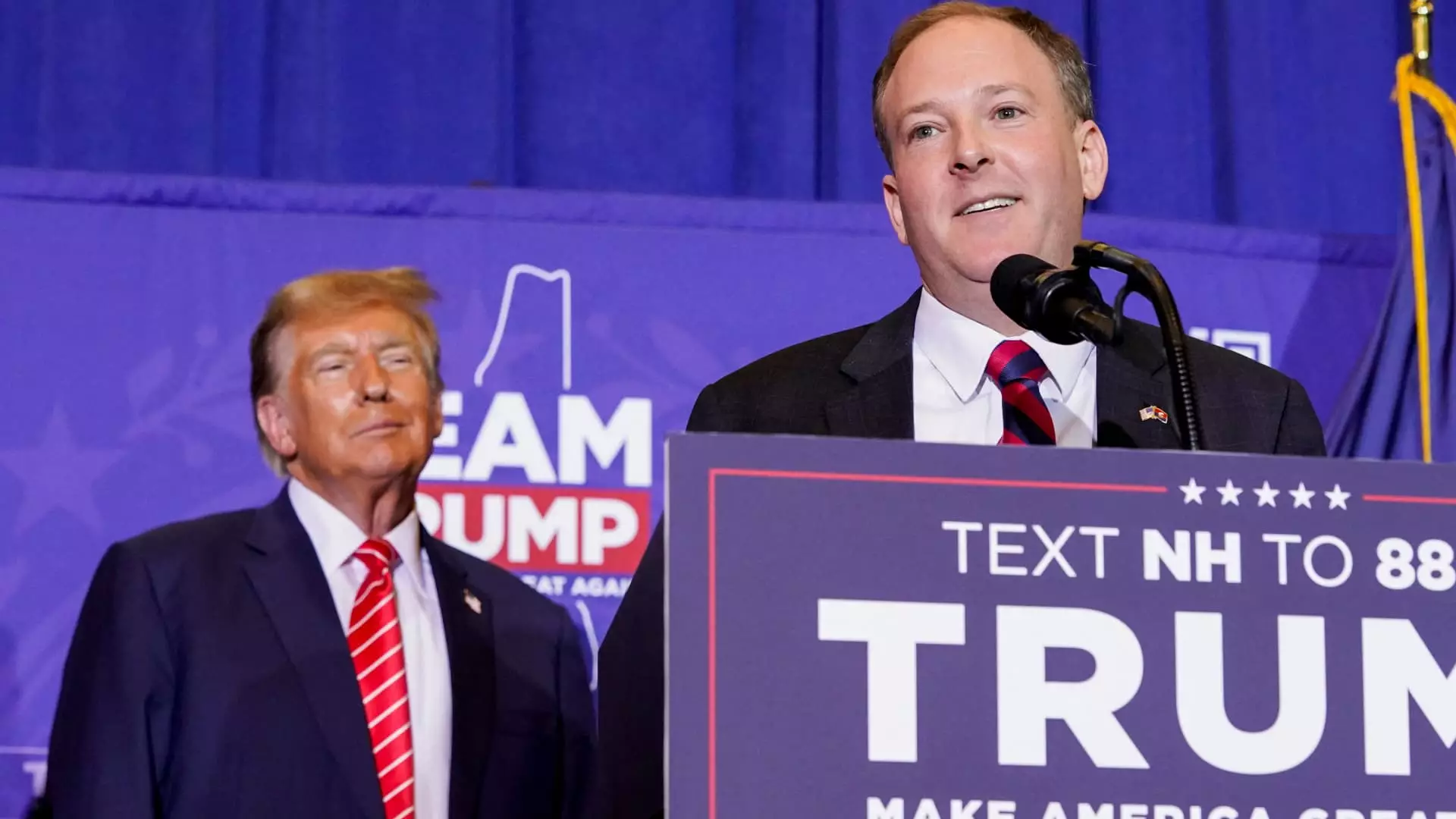In the tumultuous landscape of American politics, the appointments made by a president-elect often signal their forthcoming agenda. Recent announcements from President-elect Donald Trump regarding key positions in his administration have ignited widespread discussion among political analysts and the public alike. Specifically, Trump has chosen former Congressman Lee Zeldin as the leader of the Environmental Protection Agency (EPA) and current Congresswoman Elise Stefanik as the U.S. ambassador to the United Nations. Both selections merit closer scrutiny in light of current environmental and diplomatic challenges.
The announcement of Lee Zeldin as EPA administrator raises significant eyebrows, particularly due to his legislative history. Zeldin, a Republican from New York, served four terms in Congress where he amassed a notably low lifetime rating from environmental advocacy groups. His lifetime score of merely 14% from the League of Conservation Voters indicates that many of his decisions aligned more closely with businesses than with environmental protection. This score elicits concerns about his genuine commitment to preserving the planet’s health and underlines a fundamental divergence from the EPA’s mission of safeguarding natural resources.
In Trump’s statement, he positioned Zeldin as a “fighter for America First policies,” which ostensibly includes deregulation aimed at bolstering American businesses. Zeldin echoed this sentiment on social media, declaring that the administration would work to “restore U.S. energy dominance” while still aiming to protect air and water quality. This dual promise of deregulation and environmental protection seems contradictory. Critics, including environmental groups, argue that prioritizing business interests undermines efforts to combat climate change and preserve ecosystems. The Sierra Club’s Executive Director articulated widespread fears that appointing Zeldin symbolizes an alarming retreat from essential environmental protections in favor of corporate favors.
Zeldin’s quick pivot to announce plans for rolling back regulations, especially during his initial days in office, emphasizes a broader trend observed in Trump’s administration—an inclination to dismantle regulatory frameworks that have been in place for decades. This shift poses profound implications for the future of environmental policy and underscores the ideological schism in American politics regarding climate action.
Elise Stefanik: A Strategic Diplomatic Role
In stark contrast, Elise Stefanik’s appointment as U.N. Ambassador presents its own set of complexities. Celebrated by Trump as a steadfast advocate since the early days of his presidential run, her selection could serve multiple political purposes. As Chair of the House Republican Conference and a key voice on the House Armed Services and Intelligence Committees, Stefanik boasts a résumé that aligns with the administration’s focus on national security.
However, her potential appointment also carries risks, particularly for the Republican Party. While executing her duties on the international stage, Stefanik’s departure from Congress could affect the party’s numerical strength and influence in a potentially precarious political environment post-2024. Such a transition cannot be overlooked—if the Republicans maintain a slim majority in the House, losing a seasoned member like Stefanik could weaken their legislative clout.
Stefanik’s past actions, particularly her vocal stance on combating antisemitism in academic institutions, suggest that she may prioritize human rights and international advocacy in her diplomatic approach. Whether this will translate into effective leadership at the U.N. remains to be seen, particularly as her track record will be scrutinized in the context of broader American foreign policy agendas.
The appointments of Zeldin and Stefanik reflect Trump’s focus on consolidating support among his base while navigating the complexities of governance. The divergence in their nominations—environmental deregulation versus strategic diplomacy—illuminates the duality of priorities in an administration that often struggles to balance competing interests.
As the nation anticipates the incoming administration’s actions, there is much at stake. The ramifications of Zeldin’s and Stefanik’s appointments may reverberate beyond their immediate roles, impacting U.S. environmental policy and foreign relations for years to come. Moreover, how these appointments will influence legislative agendas and party dynamics in Congress will be crucial to watch in the lead-up to and following the inauguration. As political narratives continue to evolve, the effectiveness of these leaders will be measured against the challenges they are poised to confront head-on. The upcoming months will reveal the true intentions behind these appointments, and their impacts on both domestic and international landscapes are topics that will remain prevalent in public discourse.


Leave a Reply